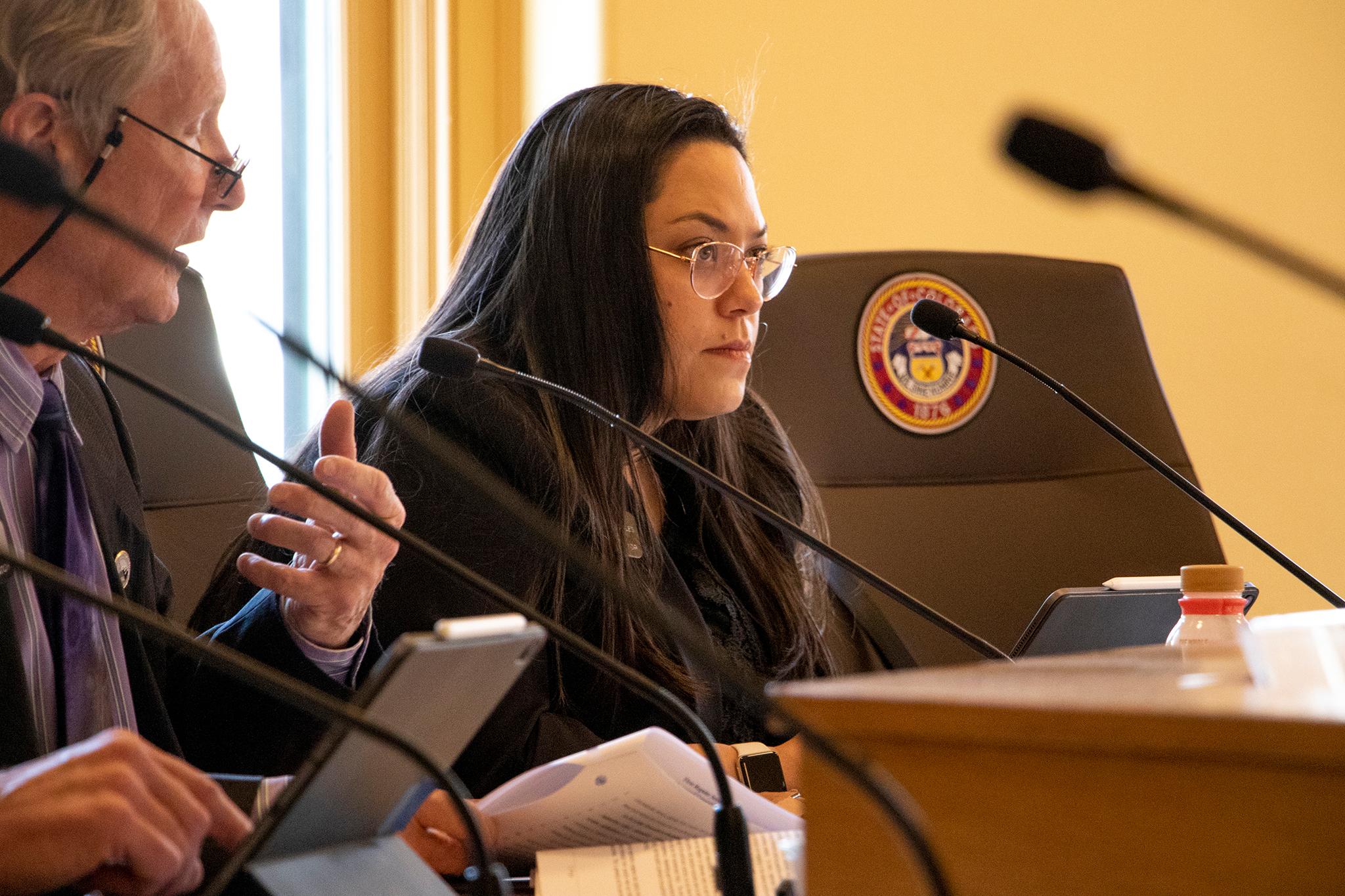
Colorado legislators will soon introduce a bill to abolish the state’s death penalty for future cases, according to Democratic Sen. Julie Gonzales. She sponsored a previous attempt to undo capital punishment in the last session.
“After the 2019 legislative session ended, I spent the summer and fall listening to the family members of murder victims, listening to my colleagues’ concerns, and listening to people who were exonerated after being falsely accused and sentenced to death. Their stories underscored and renewed my commitment to abolishing the death penalty,” Gonzales said in a text message to CPR News.
Reformers have tried for years to ban executions in Colorado. An effort in 2009 failed by a single last-minute Senate vote. Last year, Democrats gave up on repeal as tensions rose within the party.
The new effort may enjoy stronger support: Sens. Jack Tate and Kevin Priola, both Republicans, will back the bill. That could help it pass despite a divide among Democrats in the Senate.
Tate said the death penalty is ineffective and expensive, with “the risk of executing an innocent person.” Priola, a Catholic, believes in “protecting life from conception to natural death.”
Their votes could counterbalance the vote of Sen. Rhonda Fields, a Democrat who wants Colorado to keep the penalty. Her son Javad Marshall-Fields and his fiancee Vivian Wolfe were murdered by two men who are on death row today.
“It’s a constant pain I live with every day. It’s something that you just you don’t get over -- you just live through,” Fields told CPR last March.
Gov. Jared Polis would support a repeal bill, he said last year, and if one passed, he would also consider sparing the lives of the three men already on death row. Reps. Jeni Arndt and Adrienne Benavidez will co-sponsor the 2020 bill, along with Tate.
An "international trend"
Capital punishment is allowed in 29 states and by the federal government, according to the National Conference of State Legislatures, but the movement against has gained momentum.
“What’s going on in Colorado is part of a national and really international trend,” said Michael Radelet, a sociology professor at the University of Colorado Boulder and the author of “The History of the Death Penalty in Colorado.”
New Hampshire is the most recent state to end capital punishment, despite the governor’s attempted veto. Before that, New Mexico, Illinois, Connecticut and Maryland abolished it between 2009 and 2013.
Public opinion has shifted nationally, with support for the death penalty falling from 80 percent in 1995 to 56 percent in 2019, according to Gallup. Moreover, most people now prefer life without parole over death as the punishment for the most severe crimes. And abolition movements have also spread around the world.
“We really are alone on our use of the death penalty (among Western democracies),” Radelet said.
An issue that divides
Colorado has only executed one person in the last 50 years: Gary Lee Davis, in 1997. Former Gov. John Hickenlooper effectively froze executions in Colorado in 2013, a move that Polis is unlikely to reverse.
Today, three men wait on death row. Besides’ the men convicted of killing Fields’ son and his fiancee, the third is Nathan Dunlap, who was sentenced to death for killing four people at a pizza restaurant in 1993.
The issue is one that divides the families of murder victims. Gail Rice, 72, is the sister of the late Bruce VanderJagt, a Denver police officer who was murdered by a man with an automatic rifle in 1997.
The killer died by suicide at the scene, but an accomplice faced life in prison. Going through the lengthy trial turned Rice into an anti-death penalty activist, especially after she learned that her brother had opposed capital punishment.
“That's part and parcel of my Christian faith. If I throw that out and see this as a subhuman person of no worth, then I've got to throw out a lot of my Christian faith,” she said. “The death penalty is especially harshly carried out against the poor and marginalized. I think it makes a mockery of what the Bible says is God's very preferential caring for the poor and the powerless.”
Executions are allowed in Colorado by lethal injection. In recent years, pharmaceutical companies have limited the supply of execution drugs, so some states have introduced new methods.
Oklahoma, Mississippi and Alabama now allow firing squads, electrocution, and nitrogen hypoxia, according to the NCSL. Supporters of capital punishment also argue that it discourages would-be killers, an idea contested by some researchers.
The U.S. Supreme Court halted the death penalty nationwide in 1972, finding that states carried it out unfairly. But in 1974, Colorado voters overwhelmingly approved a measure to reinstate the state’s death penalty. In 1978, the Colorado Supreme Court temporarily froze the practice. In 1979, the legislature amended the law to begin executions once more.
Colorado previously abolished the death penalty in 1897, but reinstated it in 1901 in an attempt to discourage horrific lynchings, Radelet said.
“The legislature always has had mixed feelings about it,” he added.









